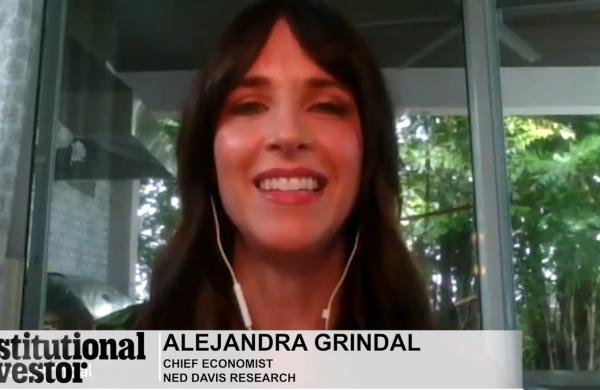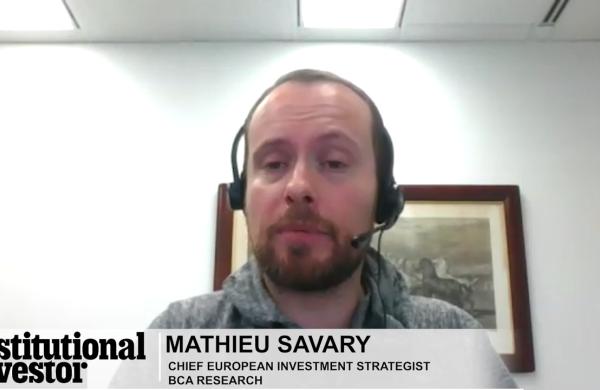No one would ever mistake Alessandro Profumo for an old-fashion Italian banker. Since taking the helm of UniCredito Group in 1997 at the tender age of 40, Profumo has revealed a boldness—and a frank aggressiveness—that is rarely seen in Italy’s cozy financial circles.
First he moved the bank into several of Italy’s most prosperous regions with a rash of shrewd acquisitions. Profumo completely revamped the bank’s retail operations, dramatically reducing staff in a country where jobs are still often viewed as an entitlement; created an investment banking division; attempted the first cross-border European bank merger; bought a U.S. mutual fund company; and chose Dublin, of all places, as the headquarters of his mutual fund operation.
Most remarkably, Profumo coolly took on Italy’s largest investment bank, Mediobanca, and its powerful chairman, the late Enrico Cuccia, in a hostile takeover bid that shocked the local financial establishment. The challenge helped established Profumo’s reputation as Italy’s most daring banker.
The onetime management consultant has transformed a lumbering state-run institution into a formidable profit-making enterprise. As the third-largest publicly held bank in Italy, UniCredito boasts efficiency ratios that surpass all its rivals’. In the past four years, its return on equity has leaped nearly five-fold, and its stock price has quintupled. Its two-year-old mutual fund business now ranks as Italy’s third largest.
“Profumo is the most innovative and aggressive banker in the country,” says an admiring Vittorio Terzi, a partner at McKinsey & Co. in Milan and a former colleague. Adds Paolo Braghiero, head of financial institutions investment banking at Credit Suisse First Boston in Milan, “UniCredito is the best positioned, best managed and most efficient of the traditional Italian banks.”
To Profumo, though, that’s not enough. “Profumo wants desperately to create a European story,” as one Milan-based investment banker puts it, though he plainly has not done that. Last year Profumo’s unprecedented, cross-border bit to merge with Spain's Banco Bilbao Vizcaya collapsed, and an offer for U.K. asset manager Carrmore Investment Management this March was rebuffed. The firm's European mutual fund business, despite its Dublin address, remains heavily dependent on its original Italian customer base.
The setbacks have prompted Profumo to reconsider his strategy and to focus instead on UniCredito's existing businesses. But he hasn't given up on a European initiative—he's just re-assessing it. "A year ago I was thinking of one partner for all activities. Now it may make sense to have different partners in Europe," says Profumo.
As Profumo attempts to extend UniCredito's franchise over the Alps and into northern Europe, trouble is brewing on his home turf, where a number of the bank's recent acquisition attempts have come up empty and competition is heating up. For all its success, UniCrediro still lacks the heft to command respect as a major European player. If it fails to grow, the bank may yet meet the fare of so many other financial institutions—to be swallowed up by a conglomerate that is looking to stake its own claim to the burgeoning new European marker.
That UniCredito's bankers can even dream of a pan-European empire is itself a tribute to Profumo. Credito Italiano, UniCredito's forerunner, began life as one of Italy's three state-owned banks, acting as a lender to Italian industrial groups and other government-controlled entities. Founded in 1870, the bank was for many years a model of inefficiency. In 1992 Credito Italiano produced just L104 billion ($48 million) in profits on revenue of L1.8 trillion.
In some ways Profumo was a natural choice to overhaul the undisciplined lending enterprise after it was privatized in 1993. He started his banking career at the age of 19, working as a clerk in a branch of Banco Lariano in Milan while simultaneously pursuing an economics degree. "My time at university wasn't so brilliant," Profumo says. Perhaps, but he did graduate magna cum laude from Milan's prestigious Bocconi Uni ersity. He went on to manage Banco Lariano's biggest local branch, learning firsthand how to run a small retail operation.
Profumo's frontline banking experience was later complemented by two years at U.S. management consulting firm McKinsey in Milan. He left that firm in 1989 to join one of its spin-offs, Bain, Cuneo & Associati. "My consulting period was my equivalent of an MBA," Profumo says. "I learned about being flexible and focusing on the big issues rather than wasting rime on the small ones."
After a three-year stint at Italian insurance group Riunione Adriatica di Sicurtà, where he oversaw asset management and banking, Profumo joined Credito Italiano in December 1994 as deputy general manager in charge of planning. He rose quickly to deputy CEO in 1995.
As a boss, Profumo is direct and demanding—he insists on measurable financial results—unlike many of his colleagues, who rely on personal relationships and feel most comfortable with the status quo. "Profumo is rough," says McKinsey's Terzi. "And he's different from the typical Italian banker, who is cautious and diplomatic. He's straightforward, not the type to smile to your face and criticize you behind your back."
Drawing upon his retail and consulting experience, Profumo wasted no time when he became CEO in 1997. He imposed clear performance goals, dismissed two thirds of the management group and instituted incentivized compensation, to this day an unusual practice in Italian banking. He promoted some younger managers, including Pierro Modiano, who now heads wholesale banking, and Fabio lnnocenzi, who runs asset management. He centralized many of the bank's bloated back-office operations and shifted employees into from-office sales positions. "He understands all the details, which is why he was able to reshape the branch network so successfully," says one Milan-based investment banker.
Two acquisitions, one of which occurred before his elevation to CEO, laid the foundation for the current UniCredito. The first was the purchase of Rolo Banca, a strong regional retail institution that gave Credito Italiano access to the wealthy northern Italian region of Emilia-Romagna.
More important, the 1998 takeover of UniCredito brought in savings banks from three other affluent regions: Cariverona Banca (Veneto), Cassa di Risparmio di Torino (Piedmont) and Cassamarca (Treviso). The acquisition added L107 trillion in assets, increasing the bank's asset base by 60 percent.
Profumo also created a wholesale banking division, which includes asset management and investment banking. Despite a late start, both businesses have blossomed in the past year. And he took the unprecedented step of setting up a front office in Dublin to take advantage of the lower taxes there and to attempt to create a European presence.
Profumo jumped into the critical U.S. market with his July acquisition of Boston-based Pioneer Group. Though a troubled institution, Pioneer brings about $24 billion in mutual fund assets, along with a long list of products, to the bank's asset management business.Today UniCrediro operates more than 3,600 bank branches throughout Italy with total assets of L289 trillion. All told, the company employs 60,000 people; last year they delivered net profits of L2.49 trillion.
UniCrediro looks after about 10 percent of all Italian bank deposits and lending in a highly fragmented market where only the top three institutions each have more than a 5 percent share. The newly created wholesale unit already contributes 15 percent of the bank's profits, and assets under management have reached $105 billion, putting the bank among the top 30 European investment managers. With €75.4 billion ($63.6 billion) in assets and a 13.4 percent market share, UniCredito trails only Banca lntesa (€109.9 billion in assets and a 19.6 percent market share) and San Paolo IMI Group (€I01 billion in assets and an 18 percent market share) in Italian mutual fund assets.
At the end of 1999, UniCredito's cost-income ratio stood at 56.4 percent. It is expected to fall to below 50 percent by 2001. In comparison, Banca Intesa and San Paolo IMI have costincome ratios of 72.7 percent and 60.9 percent, respectively.
But these successes have come at a cost. Profumo's goaloriented style hasn't won him many friends in Italy's conservative banking community. Just when he most needs a partner, Profumo finds himself increasingly alienated from rival bankers. "Profumo has become isolated in the Italian community," says Braghiero. "Other executives are scared that if they merge with UniCredito, Profumo will take control."
Profumo made his first real break from the Italian establishment about 18 months ago. At the time, the mighty investment bank Mediobanca was led by then-91-year-old Enrico Cuccia. Cuccia, who died this June, wielded unrivaled power through a web of joint stockholding arrangements and personal friendships.
When Profumo made a welcome bid for Banca Commerciale ltaliana, not only one of Italy's biggest banks but also a Mediobanca shareholder, it stunned the financial community. Flying solo, he was making a frontal assault on one of Mediobanca's allies. "Profumo launched a hostile bid without consulting anyone," explains one Milan-based investment banker. "It had never happened before."
Following an acrimonious fight, Cuccia was able to block Profumo's bid for BCI by lining up Banca lntesa to buy the BCI stake instead. (This strategy later backfired when Banca Intesa sold BCI's 8.9 percent holding in Mediobanca and began to compere against it in corporate investment banking.) While the result was inconclusive, Profumo's gambit showed that he wasn't afraid to take on Italy's most important bankers.
Profumo has even waged battles with his own shareholders. Recently, he tussled with the charitable foundations of the three savings banks UniCredito acquired in 1998. As part of the merger agreement, these foundations (Cariverona, Cassamarca and Cassa di R.isparmio di Torino) gained control of 38 percent of the combined group's capital, making them the bank's largest shareholders.
The chairmen of the foundations, accustomed to having a voice in the management of their banks, wanted to exercise similar control of UniCredito. "[UniCredito's] managers can say what they like, but they take orders and don't call the shots," Dino De Poli, chairman of Cassamarca, blustered at the time. "They are good managers but a bit spoiled."
Specifically, the foundations wanted the majority of the seats on UniCrediro's board, instead of the minority envisaged in the initial merger agreement. But Profumo wouldn't budge. Toward the beginning of last year, the foundations that control Cariverona and Cassamarca sold a 0.75 percent stake in UniCredito to Deutsche Bank, a blunt warning that they shouldn't be mistaken for pacifists.
After a weekend of heated talks this January, management and shareholders reached a compromise. They agreed to increase the number of seats on the board from 17 to 19, dividing the two extra positions between them. Denied its opening, Deutsche Bank announced the sale of its stake last June.
Eight months later, Profumo downplays the dispute with the foundations. Shareholders and management had no time to get to know each other, he says. "We got married without having an engagement period. But we soon realized we had the same interest—UniCredito's success."
That success depends on UniCredito's ability to grow—fast. When Profumo tried to initiate Europe's first ever cross-border banking merger, with Spain's much larger Banco Bilbao Vizcaya, UniCredito's size scuttled the deal. Italy's central bank wanted a merger of equals, and this wasn't one.
"UniCredito needs critical mass to compete in Europe," says Francesca Tondi, an analyst covering Italian banks at J.P. Morgan in London. ''A further domestic acquisition or merger could be beneficial." Whispers that Italy's No. 1 and 2 banks, San Paolo IMI and Banca Intesa, will merge next year only intensify the pressure on UniCredito to find its own partner. The union of ltaly's two largest banks would create a local giant with a market capitalization of €40 billion. UniCredito's market cap: €24 billion.
Profumo, the consummate strategist, must feel stymied by his failure to strike a big deal. He responds irritably to questions on the subject and instead points to a recent change in focus. "Our priorities have changed," he says.
Rather than chase after acquisitions, Profumo insists that he wants to concentrate on growing UniCredito's existing businesses, with four main priorities: a reorganization of the branch network in Italy; new distribution platforms, such as Internet bank Xelion; growth in Central Europe (UniCredito bought the majority of Bank Pekao, Poland's largest bank last year); and investment banking and asset management.
Investment banking and asset management report to Pietro Modiano, 49, recently appointed deputy CEO of UniCredito Group and a rising star at the bank.
The wholesale banking division is a small but visible success (it already accounts for 15 percent of total group profits), centered for the moment on the Italian market. The bank sells investment banking products such as warrants, equity-linked bonds and structured products and pursues corporate business such as fixed income, foreign exchange trading and corporate finance.
UniCredito's fast-growing asset management division dates back to 1993, when it was launched by Attilio Molendi, then the finance director of Credito Italiano. He dispatched Fabio Innocenzi, then head of fixed income and asset allocation in the bank's research department, to meet with asset managers around the world. Innocenzi spent most of his time with Los Angeles-based Capital Group, learning the ropes from a first-class asset manager. "Capital taught us a great deal," says Innocenzi. "They have a fantastic process, and the culture is strong." Modiano and Innocenzi urged the bank to set up an asset management division, and in early 1998 they were given the green light.
UniCredito first considered Milan as the center for its new asset management group, which it dubbed Europlus Research and Management, but decided that the lack of local expertise would prove to be a problem. London was possible, but expensive. In the end, Modiano and Innocenzi decided on Dublin, making UniCredito the first non-Irish investment manager to set up a front office there. Says Modiano: "Dublin has a tradition in the equity markets, belongs to the euro and has English as its mother tongue. The tax treatment also justified the move."
Europlus has flourished under the gray Dublin skies. Starting with just $10 billion, assets under management have grown to $80 billion, riding high on the boom in Italian equities. The group offers more than 100 funds, mostly through the UniCredito retail network. Trying to follow in Capital's footsteps, Europlus adopted a team-based approach and bottom-up stock selection.
Still, Europlus funds remain stubbornly domestic. Roughly 97 percent of its clients are Italian. Modiano and Innocenzi acknowledge that they have to lower that percentage to make it as a first-tier asset manager. "The extraordinary growth linked to Italian families' rebalancing their portfolios is over," says Innocenzi, who expects just 2 to 3 percent growth in the Italian mutual fund market in the next couple of years.
Like many asset managers, UniCredito decided the best way to go global was to make an acquisition.Last spring the bank paid $1.2 billion for Boston-based Pioneer Group, which has $24.5 billion in assets. The price, about 5 percent of assets under management, seemed rich to observers, in light of the fact that Pioneer was a very troubled firm.
Pioneer funds have been poor performers, and its value orientation has been a hard sell in recent years. In addition, the firm made ill-fated diversifications into African gold mines and Russian timber operations. Pioneer suffered net outflows of $1 billion in the first quarter of 1999, more than the whole of 1998's $926 million, according to Boston-based Financial Research Corp. "Pioneer needs money and products," says Modiano. "The potential of their sales force is underrealized." UniCredito plans to "spend what is needed" to revitalize the brand in the U.S., he adds.
Sacrificed in the merger is the Europlus name. The Pioneer and Europlus businesses will be merged under a single Pioneer Global Asset Management brand. Innocenzi, the new CEO of the group, is moving from Dublin to Boston to oversee the integration of the two.
Pioneer enjoys a strong brand name in Eastern Europe (it is the largest mutual fund manager in Poland, for example, with a 40 percent market share) and in Germany, both markets where Profumo wants to grow. Even so, most analysts are skeptical that Pioneer does anything to help the Italian bank gain distribution in the rest of the European Union. Says J.P. Morgan's Tondi, "The Pioneer acquisition may not be enough to build a franchise there."
For his part, Profumo says that the big cross-border deals such as the one he planned with BBV are no longer appropriate. "The strategic context has changed," he says. "The best partner for a corporate business might not be the best one for mass retail." As a result, he may consider a variety of partnerships instead.
To attract a desirable partner, UniCrediro must substantially increase its asset base. Even then, many European banks are circling the dance floor these days, looking for strategic partners. "We are not alone," Profumo says. "Many banks are rethinking what to do in terms of partnerships." Of course, Profumo became one of Italy's youngest bank CEOs not by following the crowd—but by resolutely going his own way.





